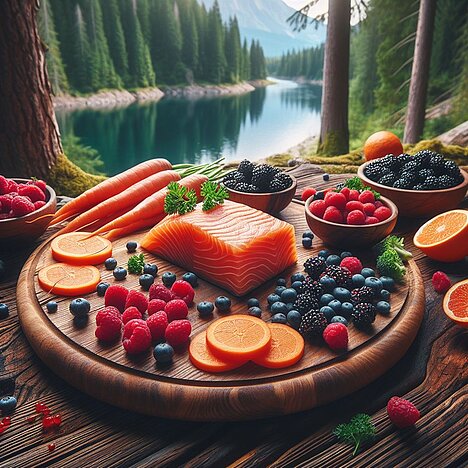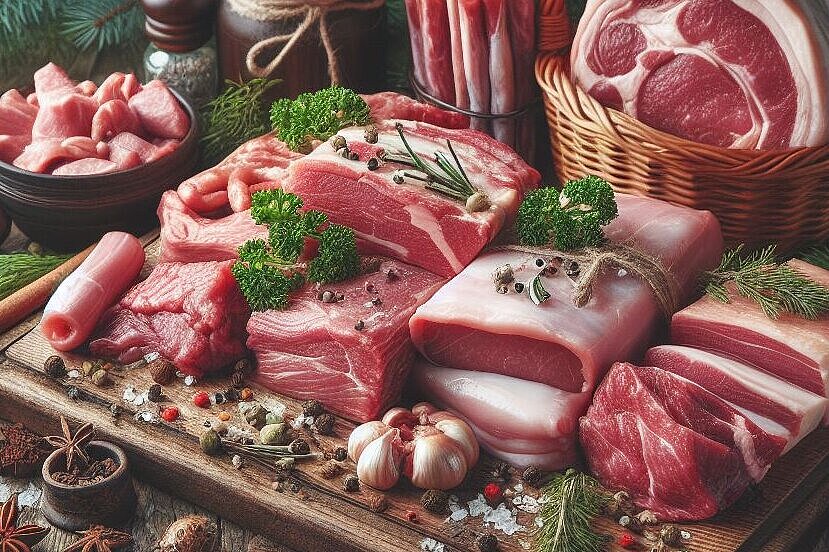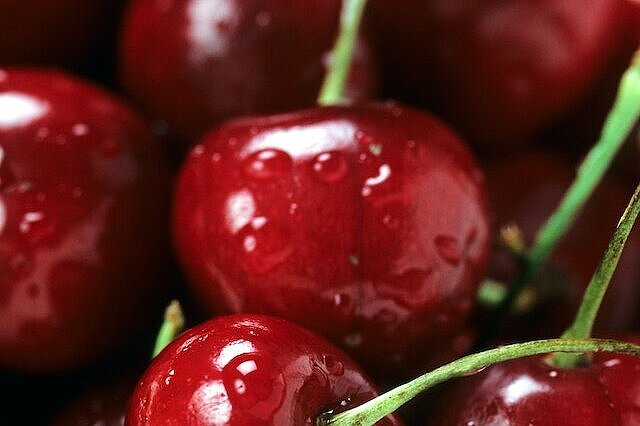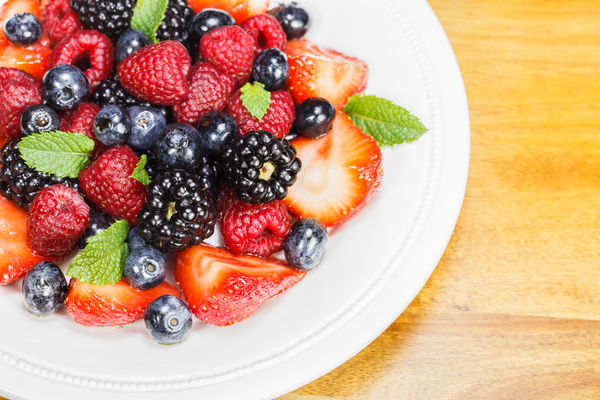Antioxidants

What antioxidants are there?
There are different types of antioxidants, which can come from natural or artificial sources. The most important natural antioxidants include
- Vitamin E: It strengthens the immune system and supports your dog's reproduction and circulation.
- Vitamin C: It promotes wound healing and collagen formation in your dog's skin and joints.
- L-carnitine: It improves your dog's energy production and heart function.
- Carotenoids: They are responsible for the color of many plants and have an anti-inflammatory and cancer-preventing effect on your dog.
- Trace elements like zinc, copper, manganese and selenium: They act as co-factors for various enzymes in your dog's body.
Artificial antioxidants include BHA (butylated hydroxyanisole), BHT (butylated hydroxytoluene) and ethoxyquin, for example. They are often used as preservatives in dog food to protect it from spoiling.
How can you provide your dog with antioxidants?
The best source of antioxidants is fresh food such as fruit, vegetables or meat. For example, you can offer your dog berries, carrots or salmon, which are rich in natural antioxidants. However, make sure that you only give small amounts and don't use foods that are toxic to dogs, such as chocolate or grapes.
If you feed dry food, you should pay attention to the quality of the ingredients. Many cheap foods contain artificial antioxidants such as BHA or BHT, which can be potentially harmful to your dog's health. You should rather choose a high-quality food that contains natural antioxidants such as vitamin E.
You can also use supplements to give your dog extra antioxidants. There are special supplements for dogs on the market that combine different antioxidants. However, you should always speak to your vet before using such products.
What are the benefits of antioxidants for dogs?
Antioxidants can have many positive effects on your dog's health. For example, they can:
- Strengthen the immune system and prevent infections
- Slow down the ageing process and improve memory
- Promote skin and coat health
- Protect joints and alleviate arthritis
- Reduce the risk of cancer
What are the disadvantages of antioxidants for dogs?
Antioxidants are not always good for dogs. Too much of them can also have negative consequences. For example, an overdose of vitamin C can lead to diarrhea or kidney stones. In addition, some artificial antioxidants such as ethoxyquin can cause allergic reactions or liver damage. You should therefore always check the ingredients of your dog food and give preference to natural antioxidants wherever possible.
Antioxidants are important substances for your dog's health. They can protect him from many diseases and improve his well-being. You can provide your dog with antioxidants through fresh food, high-quality food or food supplements. However, make sure that you don't give your dog too much and don't use harmful artificial antioxidants.
Properties 1
Are you looking for other ingredients with a specific property?
Just click on them to find more.
If you notice any signs of hypersensitivity or poisoning in your dog, you should see your vet immediately. We are not a substitute for a vet, but we try to be as accurate as possible. Every dog reacts differently and we recommend you get a second opinion or consult your vet if in doubt.
Stay healthy and take good care of your four-legged friend!😊
Similar to Antioxidants
Meat is the collective term for the muscle tissue of animals that is used as food. Meat can come from different animal species, such as beef, pork, poultry, lamb or game. Depending on the animal...
Vitamin C, also known as ascorbic acid, is a water-soluble vitamin that is found in many plant and animal foods. It is primarily known for its antioxidant effect, i.e. it intercepts free radicals...
Carnitine is an amino acid derivative that is formed from the essential amino acids lysine and methionine. The body can produce carnitine itself, but needs vitamin C, iron, niacin and vitamin B6 to...
Berries are small, juicy fruits with lots of seeds. They usually grow on bushes or vines and are often brightly colored. There are many different types of berries, for example strawberries,...



